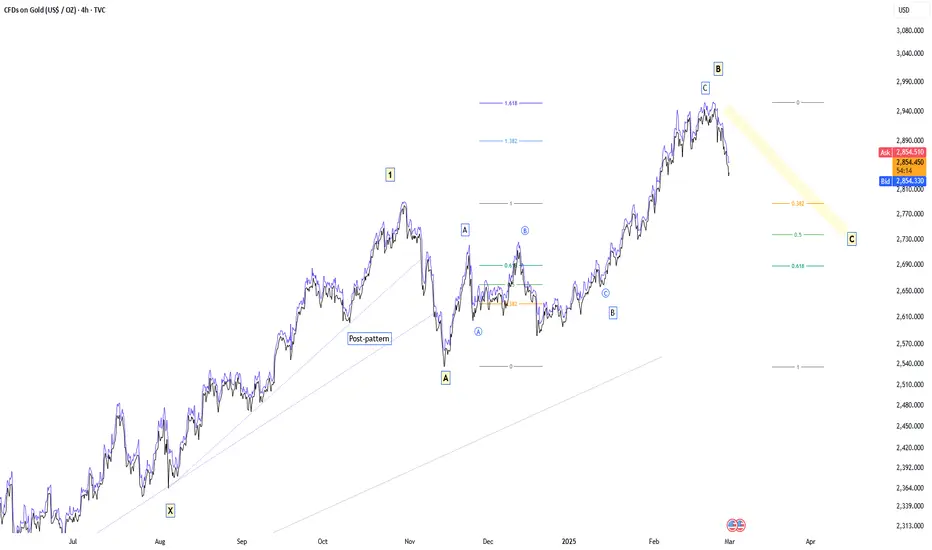Forecasting gold prices is complex, as it's influenced by a multitude of global economic and geopolitical factors. Here's a summary of key factors and recent forecasts:
Key Factors Influencing Gold Prices:
Central Bank Activity:
Central banks' gold purchases significantly impact demand. Recent trends show increased buying, which supports higher prices.
Interest rate policies of central banks, particularly the U.S. Federal Reserve, play a crucial role. Lower interest rates generally increase gold's attractiveness.
Geopolitical Uncertainty:
Global political instability, trade tensions, and conflicts drive investors towards gold as a safe-haven asset.
Inflation:
Gold is often seen as a hedge against inflation. Rising inflation can increase demand and push prices higher.
U.S. Dollar Strength:
The price of gold is typically inversely related to the U.S. dollar's strength. A weaker dollar makes gold cheaper for holders of other currencies, increasing demand.
Investor Sentiment:
Market speculation and investor confidence can cause significant price fluctuations.
Recent Forecasts:
Reports from firms like Goldman Sachs indicate expectations for gold prices to continue rising in 2025.
Factors like strong central bank demand and potential U.S. Federal Reserve interest rate cuts are driving these forecasts.
Goldman Sachs has increased their gold price target. With some predictions reaching over $3,000 a troy ounce by the end of 2025.
It is important to note that forecasts can change rapidly due to the dynamic nature of the markets.
Also factors like the current trade policies of the U.S. are having a strong effect on the price of gold.
Where to find up to date information:
Reliable financial news sources like Bloomberg, Reuters, and the Wall Street Journal provide up-to-date gold market analysis.
Websites like Trading Economics offer detailed data and forecasts.
Financial institutions like Goldman Sachs, and JP Morgan release market analysis reports.
When considering gold investments, it's essential to:
Stay informed about global economic and political developments.
Diversify your investment portfolio.
Consult with a qualified financial advisor.
Key Factors Influencing Gold Prices:
Central Bank Activity:
Central banks' gold purchases significantly impact demand. Recent trends show increased buying, which supports higher prices.
Interest rate policies of central banks, particularly the U.S. Federal Reserve, play a crucial role. Lower interest rates generally increase gold's attractiveness.
Geopolitical Uncertainty:
Global political instability, trade tensions, and conflicts drive investors towards gold as a safe-haven asset.
Inflation:
Gold is often seen as a hedge against inflation. Rising inflation can increase demand and push prices higher.
U.S. Dollar Strength:
The price of gold is typically inversely related to the U.S. dollar's strength. A weaker dollar makes gold cheaper for holders of other currencies, increasing demand.
Investor Sentiment:
Market speculation and investor confidence can cause significant price fluctuations.
Recent Forecasts:
Reports from firms like Goldman Sachs indicate expectations for gold prices to continue rising in 2025.
Factors like strong central bank demand and potential U.S. Federal Reserve interest rate cuts are driving these forecasts.
Goldman Sachs has increased their gold price target. With some predictions reaching over $3,000 a troy ounce by the end of 2025.
It is important to note that forecasts can change rapidly due to the dynamic nature of the markets.
Also factors like the current trade policies of the U.S. are having a strong effect on the price of gold.
Where to find up to date information:
Reliable financial news sources like Bloomberg, Reuters, and the Wall Street Journal provide up-to-date gold market analysis.
Websites like Trading Economics offer detailed data and forecasts.
Financial institutions like Goldman Sachs, and JP Morgan release market analysis reports.
When considering gold investments, it's essential to:
Stay informed about global economic and political developments.
Diversify your investment portfolio.
Consult with a qualified financial advisor.
Disclaimer
The information and publications are not meant to be, and do not constitute, financial, investment, trading, or other types of advice or recommendations supplied or endorsed by TradingView. Read more in the Terms of Use.
Disclaimer
The information and publications are not meant to be, and do not constitute, financial, investment, trading, or other types of advice or recommendations supplied or endorsed by TradingView. Read more in the Terms of Use.
